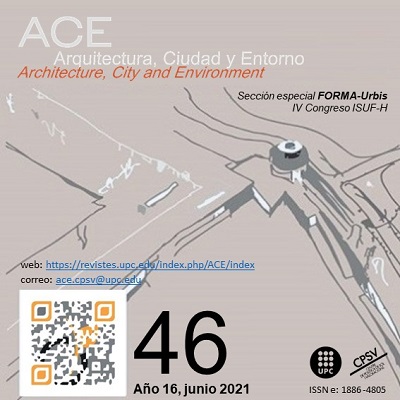Towards a Renewed Urbanism for the Recomposition of the Metropolis. Inertia and Disruptions of the New Ecometapolis
DOI:
https://doi.org/10.5821/ace.16.46.10658Keywords:
City planning, urban regeneration, regional planning, New Urban AgendaAbstract
Given the multiple and urgent challenges of planetary balances and their effect on territorial models, the article outlines a set of guidelines for the management of transformations in the key of metabolic regeneration of the contemporary metropolis. The transformation is based on the concept of the territory as a finite good that implies the preservation of non-anthropized open spaces and a greater optimization of the urbanized space. The approach presented aims to form a management that combines synergies and mutualizations by not dualizing and confronting urban and rural areas, but fostering their coexistence, compensation and cooperation. Based on the reflection and analysis of the question of contemporary urban form, the article proposes lines of work for land use planning, urban planning, plans and projects from an interdisciplinary perspective. A contribution that aims to advance our practice towards a truly holistic and hyperdisciplinary urbanism. A renewed urbanism that incorporates the new strategic guidelines, project bases and specific actions based on principles of social metabolism for the recomposition of the metropolis on the way to the new ecometapolis. Beyond the polis, there is the metapolis. Beyond the machine city economic, there is the biocity in its bioregional territory.
Downloads
Published
Issue
Section
License
| INTELECTUAL PROTECTION CRITERIA |
At this moment, it is count with the "Oficina Española de Patentes y Marcas", while global protection it is being processed by the World Intelectual Property Organization (OMPI/WIPO). Nevertheless the International Standard Serial Number Office (ISSN) has given the following numbers ISSN: 1886-4805 (electronic version) and 1887-7052 (paper version). All articles will be peer reviewed, using double blind reviewing. |
| COPYRIGHT |
The article contents and their comments are authors exclusive liability, and do not reflect necessarily the journal editor commitee's opinion. All ACE published works are subject to the following licence CC BY-NC-ND 3.0 ES http://creativecommons.org/licenses/by-nc-nd/3.0/es/ It implies that authors do not hold nor retain the copyright without restrictions but only those included in the licence. |





































